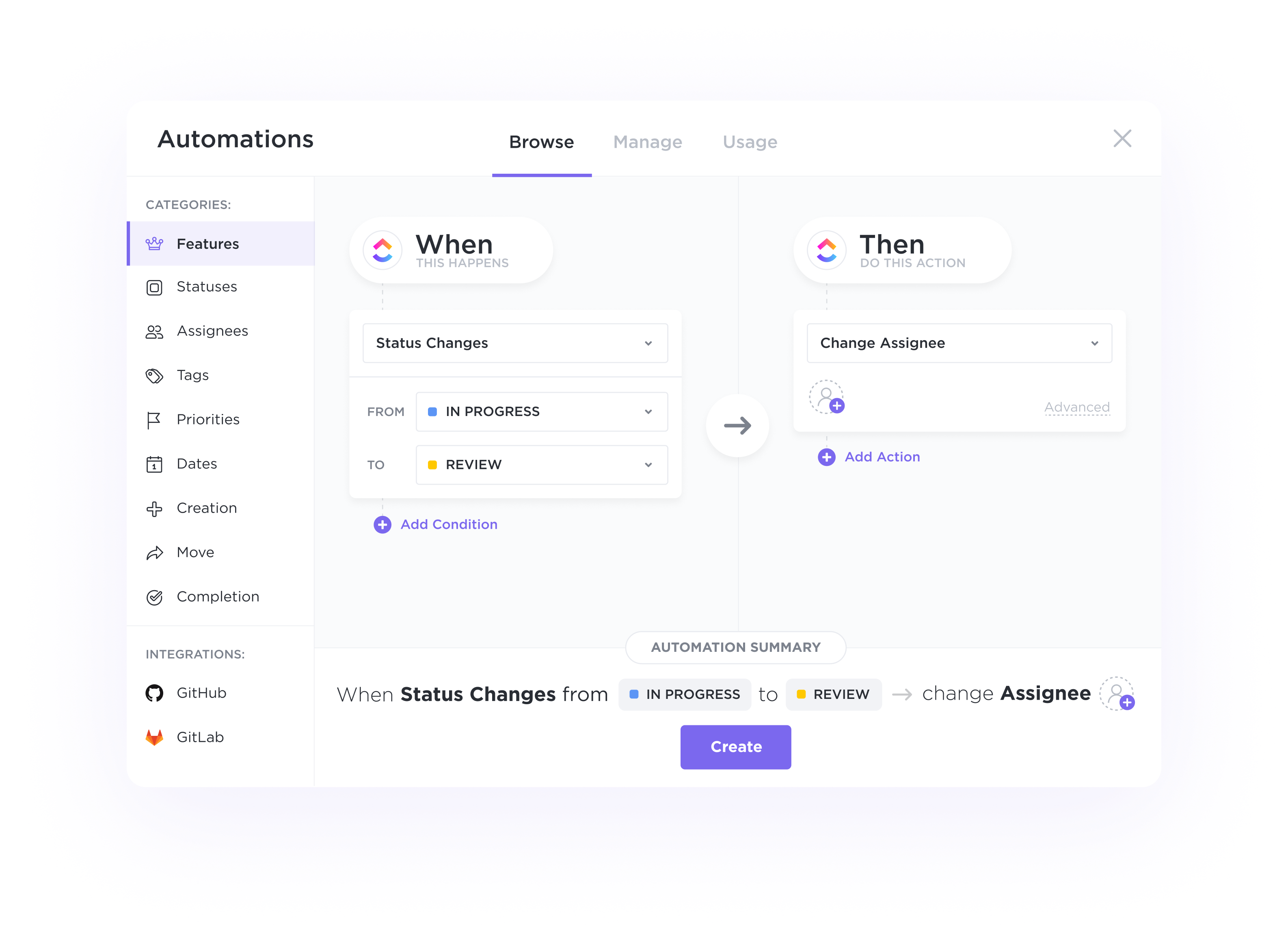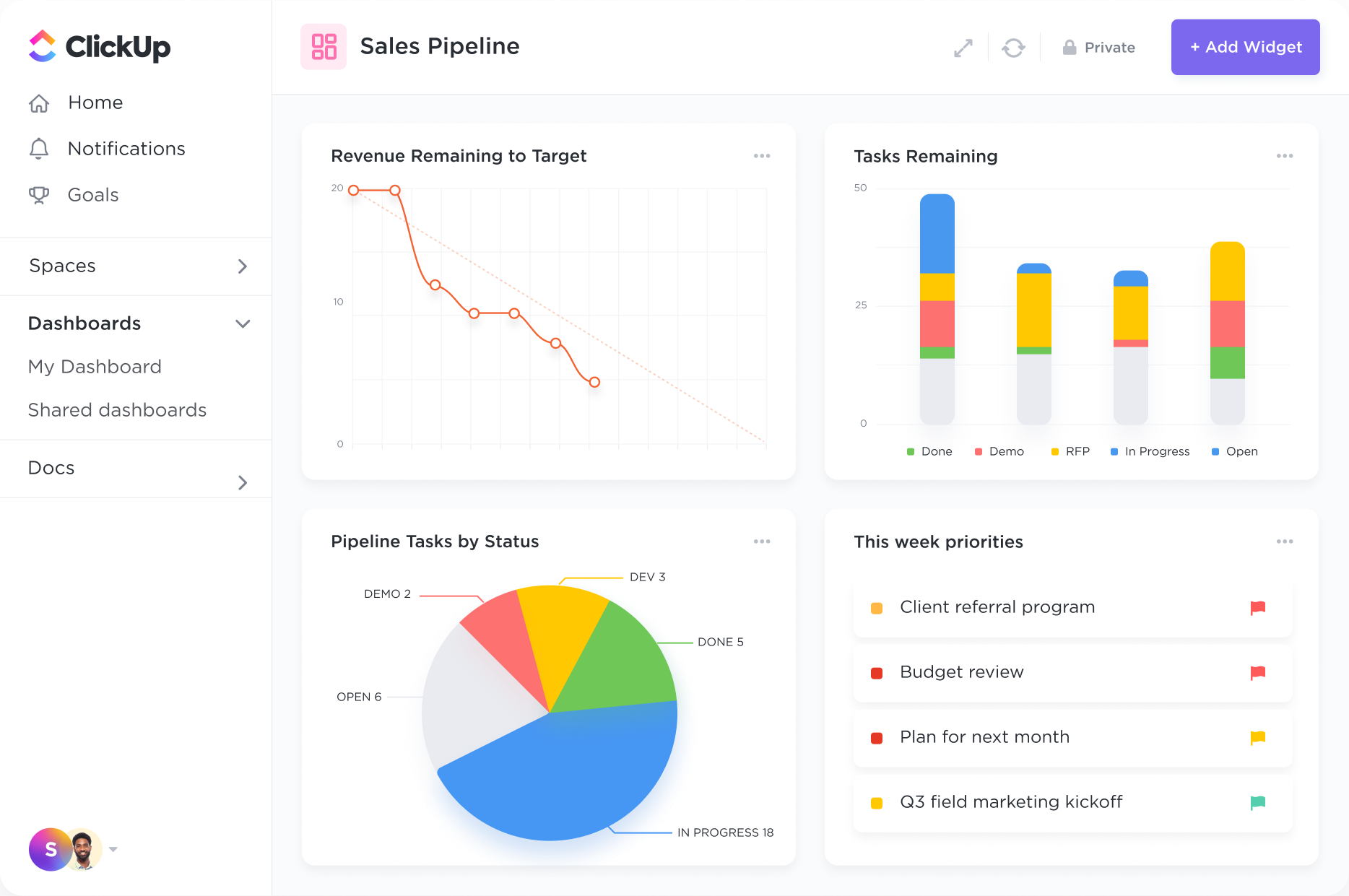Automate handoffs, status updates, and more.
Automatically assign tasks for each stage of your pipeline, trigger status updates based on activity, and switch priorities to alert your team on where to focus next.

Optimize warehouse operations with ClickUp's customizable CRM system designed specifically for Warehouse Managers. Streamline inventory tracking, enhance communication with suppliers, and improve order fulfillment processes all in one centralized platform. Increase efficiency and productivity in your warehouse management by utilizing ClickUp's powerful CRM software.
Free forever.
No credit card.
Trusted by the world’s leading businesses
Automatically assign tasks for each stage of your pipeline, trigger status updates based on activity, and switch priorities to alert your team on where to focus next.

Create high-level views to monitor customer lifetime value, average deal sizes, and more. ClickUp's 50+ Dashboard widgets make it easy to visualize all of your customer data in one place.

CRM software can help warehouse managers improve inventory management and tracking by providing real-time visibility into stock levels, tracking inventory movements, optimizing order fulfillment processes, and enabling data-driven decision-making to prevent stockouts and overstock situations.
Key features in CRM software for warehouse management include inventory tracking, order management, warehouse organization, shipping management, and real-time data analytics to optimize warehouse operations and improve efficiency.
Yes, CRM software can integrate with warehouse management systems or tools to streamline operations, improve efficiency, and provide a centralized platform for managing customer interactions and order processing.